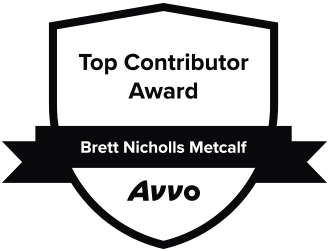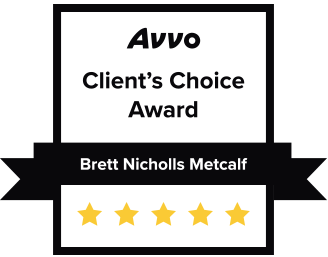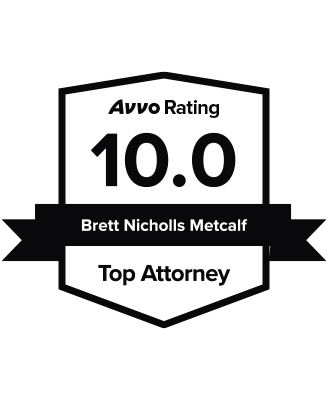Why You Should Choose Our Tampa Gun Charge Lawyers
The last thing you want is a weapons offense on your record, and working with Tampa criminal defense attorney Brett Metcalf is the best way to fight charges or avoid conviction. As a responsible gun owner, it should concern you that this conviction could make it illegal for you to own, possess, or use a firearm again. Potential employers, landlords, and financial institutions may also interpret it as a violent offense. You might find it hard to maintain employment, rent a house, go back to school, or obtain loans.
Brett Metcalf is an experienced firearms and Tampa gun charge lawyer who began his career as a prosecutor in the State Attorney’s Office. By beginning his career on the other side of the courtroom, he learned about the inner workings of the prosecution. Now, he uses his knowledge of how prosecutors think to benefit his clients.
Since 2012, Brett has fought hard to protect Tampa residents from firearms offenses. When Brett takes on your case at the beginning, he may work to have the gun charges dropped or reduced. If a prosecutor pursues charges, Brett will prepare to vigorously defend you in court. Depending on the facts, he might pursue a pretrial dismissal, an acquittal at trial, or mitigate your consequences.
Brett’s hard work has led to many outstanding results, and respected legal organizations have recognized his accomplishments. He has been named a SuperLawyers Rising Star in 2018, 2019, and 2020, and has more than 90 five-star reviews and a perfect 10 rating on Avvo.com.
Common Gun and Firearms Charges in Tampa, FL
At Metcalf Falls, Criminal Defense Attorneys, P.A., we are here to defend you against any and all allegations of violating a Florida weapons and firearms law. Below are some of the many charges we handle.
Carrying a Concealed Firearm Charges
Under Florida Statute 790.01(2), it is unlawful to carry a concealed firearm without a license under Statute 790.06 (a concealed carry permit). This is a third-degree felony.
Learn how Metcalf Falls can help fight concealed carry charges.
Aggravated Assault with a Firearm
Under Florida Statute 784.021, any intentional or unlawful threat with a deadly weapon that creates fear of imminent threat of violence is a third-degree felony. Learn how to defend against aggravated assault with a firearm charges with help from Metcalf Falls.
Carrying a Concealed Weapon Charges
Under Florida Statute 790.01(1), without a license, it is unlawful to carry a concealed weapon or electric weapon on your person. This can include a knife, tear gas, metal knuckles, billy club, or other objects. This is a first-degree misdemeanor.
Open Carrying of Weapons Charges
It is unlawful for you to openly carry any firearm or electric weapon or device under Florida Statute 790.053. This crime does not include briefly displaying a firearm you have a concealed carry permit for, as long as you do not display the gun in a threatening or angry manner. This is a second-degree misdemeanor.
Improper Exhibition of a Dangerous Weapon or Firearm Charges
Under Florida Statute 790.10, it is unlawful to exhibit a dirk, sword, sword cane, firearm, electric weapon or device, or another weapon in the presence of one or more people in an angry, careless, rude, or threatening way. This is a first-degree misdemeanor.
Discharging Firearm in Public or on Residential Property
If you knowingly discharge a firearm in a public place or negligently or recklessly discharge a firearm outdoors on residential property, then you will be charged with a first-degree misdemeanor under Florida Statute 790.15(1). Metcalf Falls can help you fight your discharging a firearm in public charge.
Discharging Firearm from a Vehicle Charges
Under Florida Statute 790.15(2), you knowingly and willfully discharge a firearm from a vehicle within 1,000 feet of another person, you will face a second-degree felony.
Possession of a Firearm by a Convicted Felon Charges
If you have been previously convicted of a felony, then you cannot knowingly possess, own, or control a firearm under Florida Statute 790.23. This includes ammunition, an electric weapon or device, tear gas, or another chemical weapon. This is a second-degree felony, and if you had actual possession of a firearm, compared to constructive possession, you face a mandatory three years in prison.
Learn how Metcalf Falls can help you fight felony possession charges.
Using a Firearm While Under the Influence
Under Florida Statute 790.151, it’s illegal for you to use a gun while under the influence of alcohol, controlled substances, or other intoxicants. This is a second-degree misdemeanor, punishable with jail time and probation. Metcalf Falls can help you fight charges for shooting a firearm while drunk or intoxicated.
Possession or Discharge of a Destructive Device
If you willfully and unlawfully make, possess, throw, project, place, or discharge a destructive device or attempt to do so, then under Florida Statute 790.161, you will be charged with a third-degree felony.
In addition, if you intended to cause bodily harm or property damage, or the act disrupted government operations, commerce, or another person’s private affairs, then it is a second-degree felony. When thisresults in bodily harm or property damage, it is a first-degree felony. But if it caused a death, it becomes a capital felony.
Firing a Weapon into an Occupied Structure
Under Florida Statute 790.19, it is unlawful to shoot a gun or some other dangerous item into another vehicle or occupied building.
Learn more about firing a gun into an occupied structure and how to fight these charges.
Providing False Information on Gun Purchase Applications
It is a third-degree felony to file a gun application with known false information. These charges carry significant fines, and could be charged federally in some circumstances. Metcalf Falls can help you fight falsifying information charges.
Penalties and Jail Time For Gun Charges in Tampa, FL
The criminal penalties and the collateral consequences of a gun convictions are serious. Contact a Tampa gun attorney right away whether you are looking at misdemeanor or felony charges.
Penalties for Misdemeanor Gun Charges
A first-degree misdemeanor is the most serious misdemeanor offense. If convicted, you can be sentenced to up to one year in jail, one year of probation, and fines up to $1,000. A second-degree misdemeanor is a lesser offense, punishable by up to 60 days in jail, six months of probation, and fines up to $500.
Penalties for Felony Gun Charges
For a felony weapons offense, the judge will sentence you based on the Florida Criminal Punishment Code. Every felony is given a specific ranking, which results in a certain number of points.
The higher the felony, the more points on your CPC scoresheet. A score of fewer than 44 points does not require imprisonment, but a score over 44 points subjects you to a minimum amount of time in prison. The judge uses the minimum and maximum sentences dictated by the CPC to decide your penalty.








